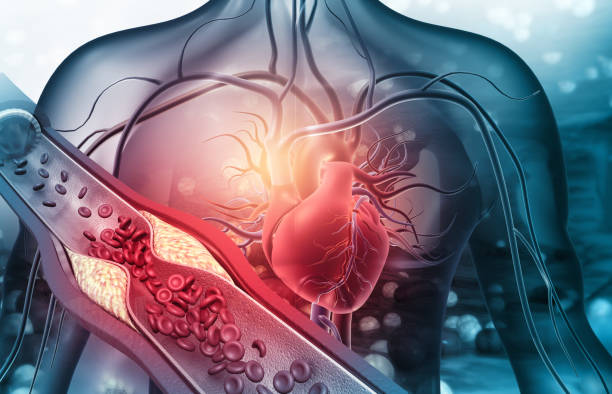Your heart is a vital organ that plays a crucial role in your overall health. Not only does it pump blood throughout your body, but it also helps to regulate your blood pressure and keep your cholesterol levels in check. If you want to keep your heart healthy, then you need to take steps to improve your cardiovascular system.
There are many things you can do to improve your cardiovascular system, and this article will explore six of them.
Eating a healthy diet
A healthy diet is important for overall health, but it’s especially important for keeping your cardiovascular system functioning properly. Eating plenty of fruits and vegetables, whole grains, and lean protein can help reduce your risk of heart disease. You should also limit your intake of saturated and trans fats, as well as sodium. These dietary changes can help improve your cholesterol levels and blood pressure.
A healthy diet also includes moderate alcohol consumption. Alcohol can help to improve your cardiovascular system by raising levels of “good” cholesterol and preventing blood clots. However, it’s important to drink in moderation, as too much alcohol can have the opposite effect and increase your risk of heart disease.
Educating yourself about your cardiovascular system
One of the best ways to improve your cardiovascular system is to learn as much as you can about it. This way, you’ll be better equipped to make informed decisions about your health.
For instance, if you have a family history of heart disease, you may want to talk to your doctor about getting genetic testing. And by taking BCLS training, you’ll be able to learn CPR and how to use an AED in case of a cardiac emergency. This can help not only with your knowledge but also give you the confidence to act in an emergency.
On the other hand, if you’re already pretty well-versed in cardiovascular health, you can still take steps to improve your knowledge. Keeping up with the latest research on heart health is one way to do this. You can also join a support group or online community dedicated to cardiovascular health. This can provide you with moral support and offer additional resources and information.
Reducing stress levels
Stress can harm your cardiovascular system. When you’re stressed, your heart rate and blood pressure increase, which can lead to chest pain, arrhythmias, and an increased risk of heart attack or stroke. You can find more information about the main types of heart failure at heartfailurematters.org and see how serious it can get. That’s why it’s important to find ways to reduce your stress levels.
There are many different ways to do this, and what works for one person may not work for another. Some people find that exercise, meditation, or spending time in nature helps them to relax. Others may need to take more drastic measures, such as changing jobs or ending a relationship. If you’re struggling to cope with stress, talk to your doctor about ways to manage it.
Getting more exercise
Exercise is important for overall health, but it can also help to improve your cardiovascular system. When you exercise, your heart muscle becomes stronger, and your heart rate and blood pressure are increased. This helps to reduce your risk of heart disease. Exercise also helps to improve your cholesterol levels and can help you to lose weight, which is also beneficial for your heart.
You don’t need to join a gym or start working out for hours every day to reap the benefits of exercise. Just adding 30 minutes of moderate-intensity aerobic activity to your daily routine can make a difference. This could include walking, biking, swimming, or running. You can also break up your exercise into shorter 10-minute sessions throughout the day.
Taking supplements or medications
If you have a heart condition, your doctor may recommend that you take medication to improve your cardiovascular system. Medications such as beta-blockers and ACE inhibitors can help to lower blood pressure and improve heart function. Statins are another type of medication that can help to improve your cholesterol levels.
In addition to medications, some supplements can help to improve your cardiovascular system. Omega-3 fatty acids, for instance, have been shown to reduce the risk of heart disease. Coenzyme Q10 is another supplement that can help to improve heart function. Just make sure to talk to your doctor before taking any supplements, as they can interact with medications you’re already taking.
Quit smoking
Smoking damages your blood vessels and makes it harder for your heart to pump blood. This increases your risk of heart disease, stroke, and aneurysms. Quitting smoking can help to improve your cholesterol levels, lower your blood pressure, and make your heart stronger.
If you’re struggling to quit smoking, there are many resources available to help you. Your doctor can prescribe medications that can make it easier to quit, and there are also over-the-counter products available. You can also join a support group or take a class to help you kick the habit for good.
There are many different lifestyle changes you can make to improve your cardiovascular system. Eating a healthy diet, quitting smoking, and reducing your alcohol intake are all good places to start. You should also aim to get enough exercise and reduce your stress levels. If you have a heart condition, your doctor may also recommend medication or supplements.
By taking these steps, you can help to improve your cardiovascular system and reduce your risk of heart disease.
